Canada is renowned for its breathtaking landscapes, friendly communities, and quality of life. It’s no surprise that many people from around the world dream of owning property here. But can non-residents or temporary residents secure a mortgage in Canada? The short answer is yes, but the process comes with specific requirements and regulations.
At Mortgage Connection, our professional mortgage brokers are here to guide you through the process of purchasing property in Canada.
Can a Non-Resident Buy Property in Canada?
When it comes to buying property as a non-resident in Canada, several legal restrictions and regulations apply, especially due to recent changes in Canadian law.
Legal Restrictions
Effective January 1, 2023, the Prohibition on the Purchase of Residential Property by Non-Canadians Act prevents most non-Canadians from buying residential properties for two years upon entering the country. This law was introduced to curb price inflation in the housing market driven by foreign investment. However, there are exemptions to this rule.
Who Is Exempt?
You can still buy residential property in Canada if you fall into one of these categories:
- Canadian citizens and permanent residents
- Refugees
- Certain temporary residents with valid work permits or student permits
Additional Costs for Buyers
If you’re exempt from the ban, keep in mind that in certain provinces, you may face extra costs in the form of foreign buyer taxes. For example:
- British Columbia: An additional 20% property transfer tax applies.
- Ontario: A non-resident speculation tax, currently set at 25%, may apply.
These taxes can substantially increase the cost of purchasing property, so it’s necessary to factor them into your budget.

Can a Temporary Resident Buy a House in Canada?
Temporary residents, such as those holding valid work or student permits, can buy property in Canada, provided they meet the criteria that exempt them from the ban. However, the process involves additional steps and stricter financial requirements.
Down Payment Requirements
Temporary residents will typically need to provide a down payment of 20% to 35% of the property’s value. Here’s what you need to know:
- The money must be in a Canadian bank account for at least 90 days before it can be used.
- Gifted funds are generally not accepted for the down payment.
This financial regulation is designed so that buyers have enough stability and liquidity to afford the investment.
Qualifying for a Mortgage in Canada as a Non-Resident
Securing a mortgage as a non-resident or temporary resident in Canada requires meeting specific conditions to satisfy the lender’s requirements.
Income Verification
Lenders will usually ask for proof of stable and ongoing income. You’ll need to provide:
- Recent pay stubs
- A letter of employment verifying your position and salary
- Evidence of income sustainability
Credit History
A good Canadian credit history is usually preferred for mortgage approval. If you’re new to Canada and don’t yet have Canadian credit, some lenders may review international credit reports or require a bank reference letter from your financial institution in your home country.
Necessary Documentation
Here are the key documents you may need to apply for a mortgage:
- Valid government-issued ID (e.g., passport)
- A net worth statement outlining your assets and liabilities
- Proof of down payment
- Details of a Canadian bank account
- Canadian credit report (if available)
Lender Policies
Not all Canadian lenders offer mortgages to non-residents. Those that do may impose:
- Higher interest rates compared to local buyers
- Minimum down payment requirements up to 35%
- Stricter terms and conditions
Furthermore, non-residents are generally not eligible for Canada Mortgage and Housing Corporation (CMHC) insurance, which is typically used to reduce down payment requirements for resident buyers.
Working with a knowledgeable mortgage broker, like those at Mortgage Connection, can help you identify lenders that offer favourable rates and tailor offers for non-residents.
Overcoming Challenges in the Process
While there are considerations for non-residents purchasing property in Canada, many of these challenges can be managed with the right preparation and support. For example, staying informed about evolving regulations, such as the temporary foreign buyer ban, helps buyers make confident, timely decisions.
Non-residents should also be aware of potential tax implications, like the non-resident speculation tax in certain provinces. Understanding these details early on can help avoid surprises and support smart financial planning.
Financing options may vary, and some lenders have more experience working with international clients than others. That’s why partnering with a knowledgeable mortgage broker can be a game-changer, ensuring you have access to a wide range of lending options and expert advice tailored to your situation.
Is Owning Property in Canada Right for You?
At Mortgage Connection, we’ve helped countless non-residents and temporary residents turn their dreams of owning Canadian property into reality. Our team of friendly, professional brokers is here to help you through every step of the process, from understanding eligibility to securing a mortgage for you.
Are you ready to take your next step? Contact us today and learn how we can help you.





One thought on “Can a Non-Resident Get a Mortgage in Canada?”
Comments are closed.